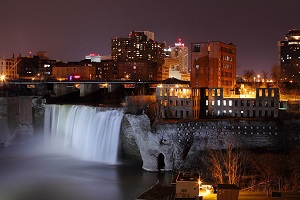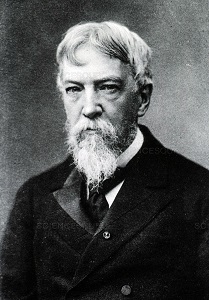Dolce far niente

Nr. 512 door Roel Rolleman, 1982
The Painter
Sitting between the sea and the buildings
He enjoyed painting the sea’s portrait.
But just as children imagine a prayer
Is merely silence, he expected his subject
To rush up the sand, and, seizing a brush,
Plaster its own portrait on the canvas.
So there was never any paint on his canvas
Until the people who lived in the buildings
Put him to work: “Try using the brush
As a means to an end. Select, for a portrait,
Something less angry and large, and more subject
To a painter’s moods, or, perhaps, to a prayer.”
How could he explain to them his prayer
That nature, not art, might usurp the canvas?
He chose his wife for a new subject,
Making her vast, like ruined buildings,
As if, forgetting itself, the portrait
Had expressed itself without a brush.
Slightly encouraged, he dipped his brush
In the sea, murmuring a heartfelt prayer:
“My soul, when I paint this next portrait
Let it be you who wrecks the canvas.”
The news spread like wildfire through the buildings:
He had gone back to the sea for his subject.
Imagine a painter crucified by his subject!
Too exhausted even to lift his brush,
He provoked some artists leaning from the buildings
To malicious mirth: “We haven’t a prayer
Now, of putting ourselves on canvas,
Or getting the sea to sit for a portrait!”
Others declared it a self-portrait.
Finally all indications of a subject
Began to fade, leaving the canvas
Perfectly white. He put down the brush.
At once a howl, that was also a prayer,
Arose from the overcrowded buildings.
They tossed him, the portrait, from the tallest of the buildings;
And the sea devoured the canvas and the brush
As though his subject had decided to remain a prayer.

John Ashbery (28 juli 1927 – 3 september 2017)
De High Falls in Rochester, New York, de geboorteplaats van John Ashbery
De Amerikaanse dichter en schrijver Richard Blanco werd geboren op 15 februari 1968 in Madrid. Zie ook alle tags voor Richard Blanco op dit blog.
Until we could (Fragment)
I knew it then, in that room where we found
for the first time our eyes, and everything—
even the din and smoke of the city around us—
disappeared, leaving us alone as if we stood
the last two in the world left capable of love,
or as if two mirrors face-to-face with no end
to the light our eyes could bend into infinity.
I knew since I knew you—but we couldn’t..
I caught the sunlight pining through the shears,
traveling millions of dark miles simply to graze
your skin as I did that first dawn I studied you
sleeping beside me: Yes, I counted your eyelashes,
read your dreams like butterflies flitting underneath
your eyelids, ready to flutter into the room. Yes,
I praised you like a majestic creature my god forgot
to create, till that morning of you suddenly tamed
in my arms, first for me to see, name you mine.
Yes to the rise and fall of your body breathing,
your every exhale a breath I took in as my own
wanting to keep even the air between us as one.
Yes to all of you. Yes I knew, but still we couldn’t..
I taught you how to dance Salsa by looking
into my Caribbean eyes, you learned to speak
in my tongue, while teaching me how to catch
a snowflake in my palms and love the grey
clouds of your grey hometown. Our years began
collecting In glossy photos time-lining our lives
across shelves and walls glancing back at us:
Us embracing in some sunset, more captivated
by each other than the sky brushed plum and rose.
Us claiming some mountain that didn’t matter
as much our climbing it, together. Us leaning
against columns of ruins as ancient as our love
was new, or leaning into our dreams at a table
flickering candlelight in our full-mooned eyes.
Richard Blanco (Madrid, 15 februari 1968)
De Amerikaanse dichteres en schrijfster Stacie Cassarino werd geboren op 15 februari 1975 in Hartford, Connecticut. Zie ook alle tags voor Stacie Cassarino op dit blog.
In the Kitchen
It’s right before you drive away:
our limbs still warm with sleep,
coffee sputtering out, the north
wind, your hips pressing me
hard against the table. I like it hard
because I need to remember this.
I want to say harder. How we must
look to the road that’s gone,
to the splayed morning of cold
butter and inveterate greed.
Light comes and goes in the field.
Oranges in a bowl, garlic, radio.
In the story of us, no one wins.
Isolation is a new theme
someone says. By now
I’ve invented you. Most people
don’t like to touch dead things.
That’s what my friend tells me
when I find my fish on the floor.
It must have wanted an out.
Sometimes my desire scares me.
Sometimes I watch football
and think: four chances
is enough to get there. But
we don’t have helmets.
I want to say harder,
I can take it, but
there’s no proof I can.
Northwest
I admit, I am afraid of isolation,
and of the way the land breaks off here
into pieces,
and of the woman who says forever
moving her tongue along my skin
like she means it.
If I believe her, I will suffer.
If I don’t believe her, I will suffer.
Who has never wanted to be unneeding?
One year since I’ve seen the mountains
or had proof love could be enough.
The mind loves hope.
Dumb heart, come down from the walnut tree.
All the distance is ultimately a lie.
In Alaska, the heart was a fourteen-pound King.
In Seattle, she held a fishing pole to the sky.
She waited.
I will remember this version of me.
I will remember loganberry, fishscales, the future,
the letter that says: love can sidewind.
Dear god, it is years since I’ve prayed.
I understand the birds are holy.
I understand the body leads us to love, or
this is one way of knowing the world.

Stacie Cassarino (Hartford, 15 februari 1975)
De Amerikaanse dichter, schrijver en arts Silas Weir Mitchell werd geboren op 15 februari 1829 in Philadelphia, Pennsylvania, als zoon van de arts John Kearsley Mitchell. Zie ook alle tags voor Silas Weir Mitchell op dit blog.
A Camp In Three Lights
Against the darkness sharply lined
Our still white tents gleamed overhead,
And dancing cones of shadow cast
When sudden flashed the camp-fire red,
Where fragrant hummed the moist swamp-spruce,
And tongues unknown the cedar spoke,
While half a century’s silent growth
Went up in cheery flame and smoke.
Pile on the logs! A flickering spire
Of ruby flame the birch-bark gives,
And as we track its leaping sparks,
Behold in heaven the North-light lives!
An arch of deep, supremest blue,
A band above of silver shade,
Where, like the frost-work’s crystal spears,
A thousand lances grow and fade,
Or shiver, touched with palest tints
Of pink and blue, and changing die,
Or toss in one triumphant blaze
Their golden banners up the sky,
With faint, quick, silken murmurings,
A noise as of an angel’s flight,
Heard like the whispers of a dream
Across the cool, clear Northern night.
Our pipes are out, the camp-fire fades,
The wild auroral ghost-lights die,
And stealing up the distant wood
The moon’s white spectre floats on high,
And, lingering, sets in awful light
A blackened pine-tree’s ghastly cross,
Then swiftly pays in silver white
The faded fire, the aurora’s loss.

Silas Weir Mitchell (15 februari 1829 – 4 januari 1914)
Zie voor nog meer schrijvers van de 15e februari ook mijn blog van 15 februari 2018 en ook mijn blog van 15 februari 2015 deel 1 en eveneens deel 2.
